The Economics and Statistics Division maintains archives of previous publications for accountability purposes, but makes no updates to keep these documents current with the latest data revisions from Statistics Canada. As a result, information in older documents may not be accurate. Please exercise caution when referring to older documents. For the latest information and historical data, please contact the individual listed to the right.
<--- Return to Archive
For additional information relating to this article, please contact:
July 16, 2021BANK OF JAPAN MONETARY POLICY The Policy Board of the Bank of Japan decided to maintain a negative interest rate of 0.1% to the Policy-Rate Balances in current accounts held by financial institutions at the Bank. The Bank of Japan will also purchase a necessary amount of Japanese government bonds (JGBs) without setting an upper limit in order to keep the 10-year JGB yields at around zero per cent.
In addition, the Bank will purchase exchange-traded funds (ETFs) and Japan real estate investment trusts (J-REITs) so that their amounts outstanding will increase at annual paces with upper limits of about 12 trillion yen and about 180 billion yen, respectively. The Bank will continue purchases of Commercial paper and corporate bonds with an upper limit on the amount outstanding of about 20 trillion yen in total until the end of March 2022.
The Bank will continue with "Quantitative and Qualitative Monetary Easing (QQE) with Yield Curve Control," aiming to achieve the price stability target of 2 per cent, as long as it is necessary for maintaining that target in a stable manner. The Bank also noted that it will continue expanding the monetary base until the year-on-year rate of increase in the observed CPI (all items less fresh food) exceeds 2 per cent and stays above the target in a stable manner.
At today’s Monetary Policy Meeting, the Bank also published a preliminary outline of the Fund-Provisioning Measure to Support Efforts on Climate Change which is aimed at supporting private financial institutions' various efforts in fields related to climate change.
Japan’s economic activity continues to recover from the impacts of the pandemic supported by the progress on vaccinations, an increase in global demand, accommodative financial conditions, and the government’s economic measures. While the level of activity in sectors that rely on personal interactions remain below the pre-pandemic levels, personal consumption is expected to pick up with gains in income and the reopening of economic activities.
Japan’s good exports will be supported by strong global demand, specifically an increased demand for digital-related products. Inbound tourism consumption is expected to remain subdued as travel restrictions remain in place.
The median projection for real GDP for each fiscal year is +3.8% in 2021, +2.7% in 2022 and +1.3% in 2023. Compared to April MPR projections, the outlook for real GDP is somewhat lower for 2021 due to the impacts of the pandemic, but higher for 2022.
The Japan consumer price index (CPI, all items less fresh food) is expected to be around 0.0% in the short term. The increase in energy prices is expected to put an upward pressure on Japan’s CPI while the reduction in mobile phone changes will bring a downward pressure. Excluding the impacts of these temporary factors, the Bank of Japan projects the year-on-year rate of change in the CPI to be at a slightly positive level.
Over the medium term, Japan’s inflation is expected to increase gradually as the economic activity continues to recover and the impacts of higher energy prices and reduced mobile phone charges dissipate. The median projection for inflation is 0.6% in 2021, 0.9% in 2022 and 1.0% in 2023. Compared to April MPR projections, the outlook for inflation is revised upward for 2021 and 2022 but is unchanged for 2023.
The Bank noted that it will closely monitor the impacts of COVID-19 on the Japanese economy and is prepared to take additional easing measures as needed. The Bank expects short- and long-term policy interest rates to remain at their present or lower levels.
The Bank of Japan’s next Monetary Policy Meeting is scheduled for Sept 21/22, 2021. The Bank's next outlook for developments in economic activity and prices will be released at the October 27/28 MPM meeting.
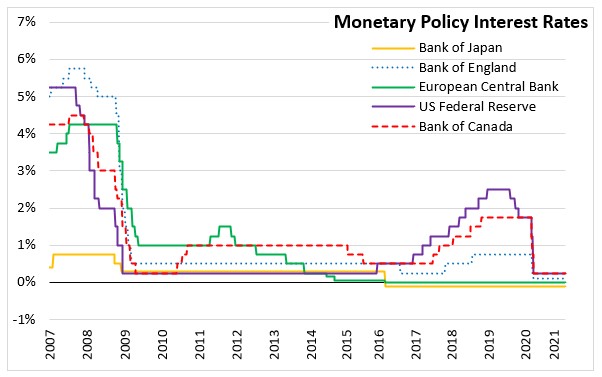
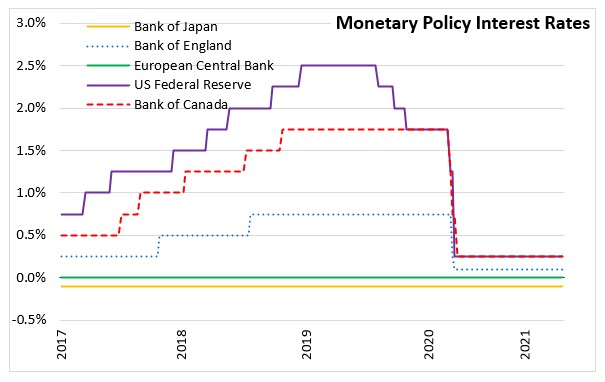
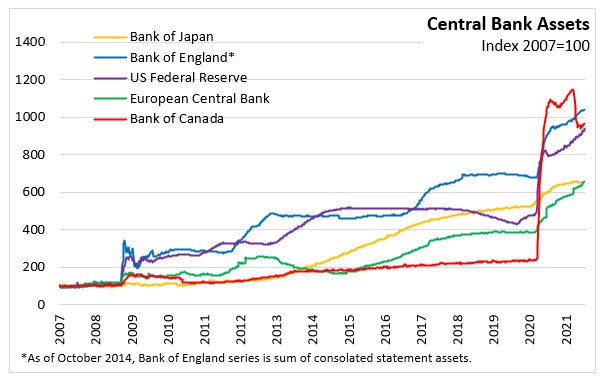
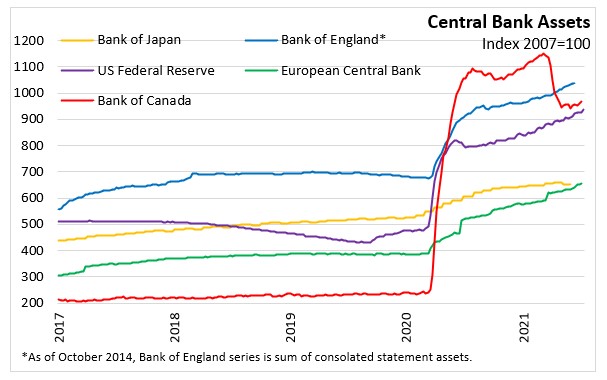
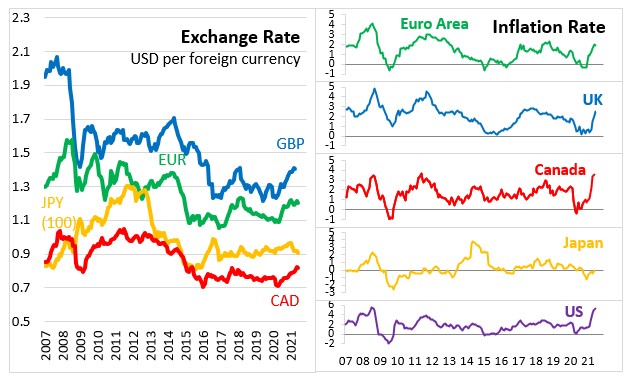
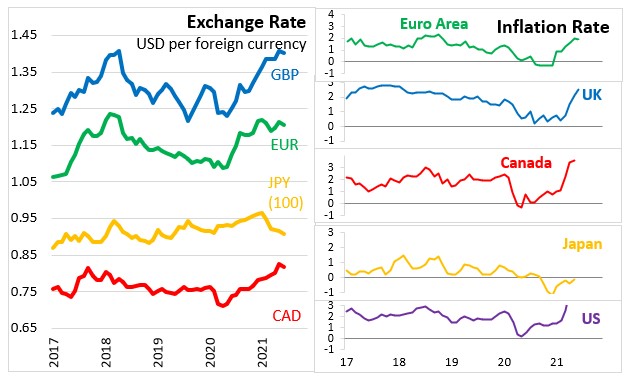
Source: Bank of Japan, Statement on Monetary Policy (July 16, 2021), Outlook for Economic Activity and Prices (July 2021)
<--- Return to Archive